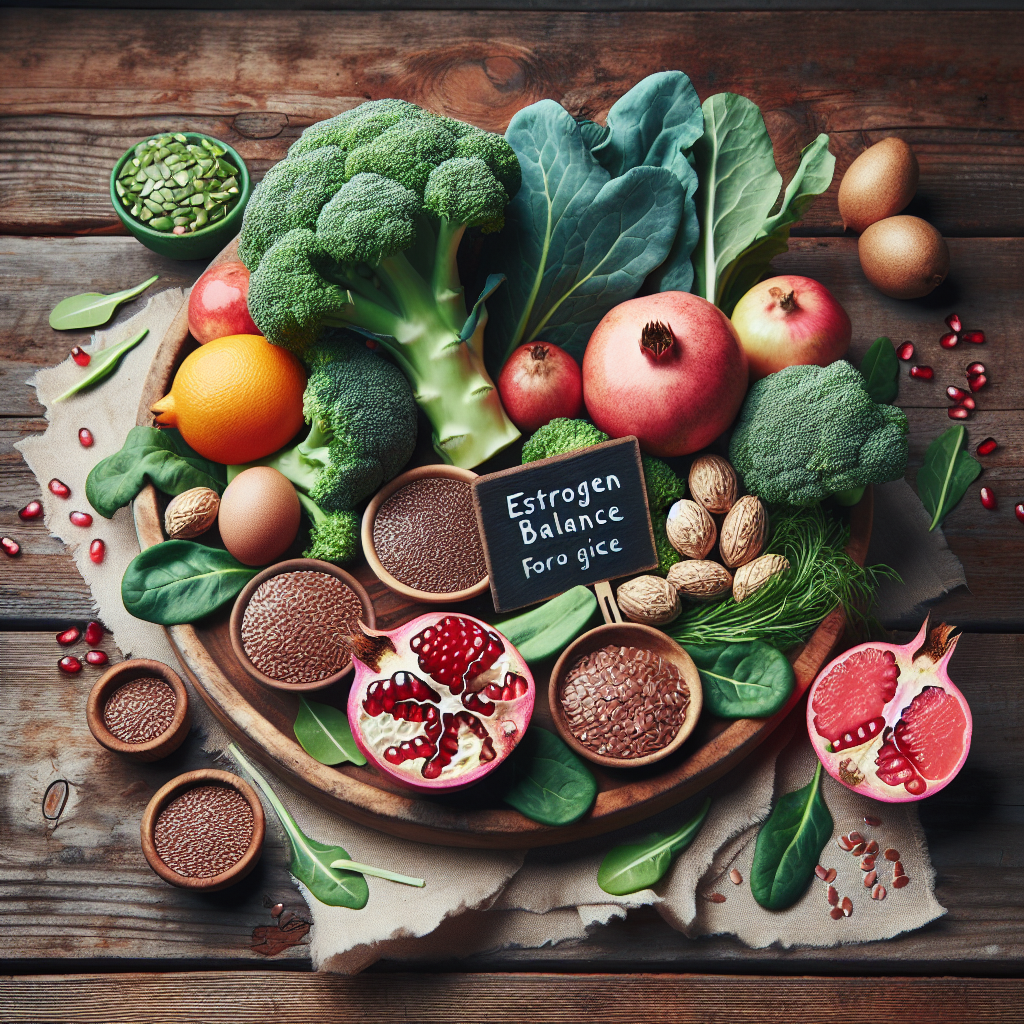The Power of Organic Foods in Estrogen Balance
Maintaining balanced estrogen levels is crucial for overall health, particularly for women experiencing hormonal fluctuations. While synthetic hormone therapies exist, many people are turning to nature’s pharmacy – organic foods – to support their endocrine system naturally. Certain plant-based foods contain compounds that help modulate estrogen production, promote its healthy metabolism, and support the body’s natural detoxification processes.
Cruciferous Vegetables: Nature’s Hormone Regulators
Among the most powerful foods for estrogen balance are cruciferous vegetables. These nutrient-dense plants contain unique compounds that support hormonal health in multiple ways:
Broccoli and Broccoli Sprouts
Rich in indole-3-carbinol (I3C) and sulforaphane, broccoli helps convert estrogen into its beneficial metabolites. Research suggests these compounds may help reduce the risk of estrogen-related conditions while supporting the body’s natural detoxification pathways.
Brussels Sprouts
These mini cabbages are packed with glucosinolates that support phase II liver detoxification, helping the body process and eliminate excess estrogen safely. They’re also rich in fiber, which aids in removing estrogen metabolites through digestion.
Kale and Collard Greens
Dark leafy greens provide a powerhouse of nutrients including calcium D-glucarate, which helps prevent estrogen recirculation in the body. Their high fiber content also promotes regular elimination of hormones through the digestive tract.
Flaxseeds: A Phytoestrogen Powerhouse
Flaxseeds offer unique benefits for estrogen balance through their rich content of lignans, a type of phytoestrogen that can help modulate estrogen levels in the body.
How Flaxseeds Work
The lignans in flaxseeds can bind to estrogen receptors, potentially blocking stronger estrogens from having an effect. This can be particularly helpful for conditions of estrogen dominance. Additionally, flaxseeds support healthy estrogen metabolism through their fiber content.
Incorporating Flaxseeds
For optimal benefits:
- Use freshly ground flaxseeds (1-2 tablespoons daily)
- Add to smoothies, oatmeal, or yogurt
- Use flaxseed oil in salad dressings (not for cooking)
Additional Estrogen-Balancing Organic Foods
While cruciferous vegetables and flaxseeds are stars of estrogen balance, several other organic foods can support hormonal health:
Organic Soy Products
Contrary to popular myths, organic, non-GMO soy products like tempeh and edamame contain beneficial phytoestrogens that may help regulate estrogen activity in the body. Fermented soy products are particularly beneficial.
Pomegranates
This antioxidant-rich fruit contains compounds that may inhibit estrogen production in fat tissue while supporting healthy estrogen metabolism in the liver.
Organic Berries
Blueberries, raspberries, and strawberries provide antioxidants and fiber that support overall hormonal balance and help eliminate excess estrogen from the body.
Maca Root
This adaptogenic root from Peru helps support endocrine function without containing hormones itself, making it valuable for both estrogen and progesterone balance.
Foods to Support Estrogen Detoxification
Supporting the body’s natural detoxification pathways is crucial for maintaining balanced estrogen levels. Certain foods can enhance this process:
- Garlic and onions: Rich in sulfur compounds that support liver detoxification
- Artichokes: Contain cynarin to support liver function and bile production
- Beets: Help with phase II liver detoxification of hormones
- Green tea: Contains catechins that support estrogen metabolism
Creating an Estrogen-Balancing Diet Plan
Incorporating these foods into your regular diet can create a natural approach to hormonal balance:
Sample Daily Plan
- Breakfast: Smoothie with flaxseeds, berries, and kale
- Lunch: Large salad with broccoli sprouts, cruciferous veggies, and olive oil dressing
- Snack: Handful of organic edamame or flax crackers
- Dinner: Stir-fry with Brussels sprouts, tofu (optional), and garlic
Important Considerations
While these foods can support estrogen balance, they’re most effective as part of an overall healthy lifestyle that includes:
- Adequate sleep and stress management
- Regular physical activity
- Minimizing exposure to environmental estrogens
- Maintaining a healthy gut microbiome
Remember that individual needs vary, and it’s always wise to consult with a healthcare provider before making significant dietary changes, especially if you have existing hormonal conditions or are taking medications.
